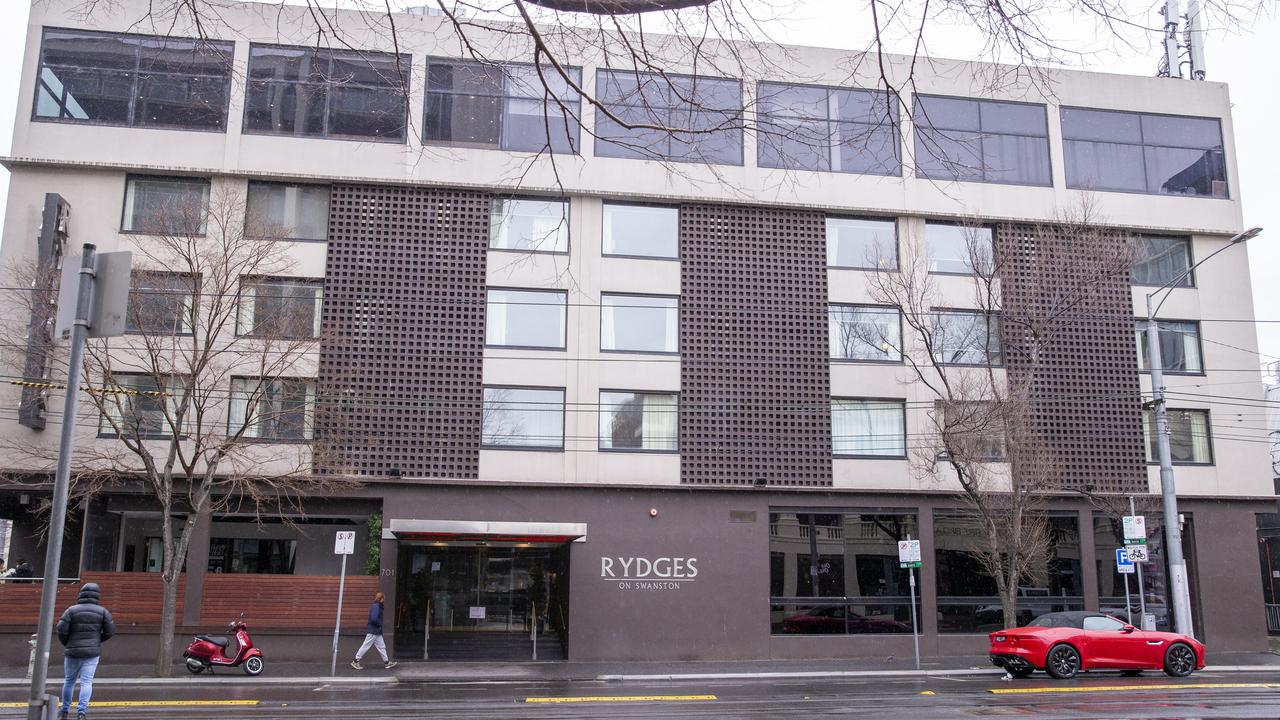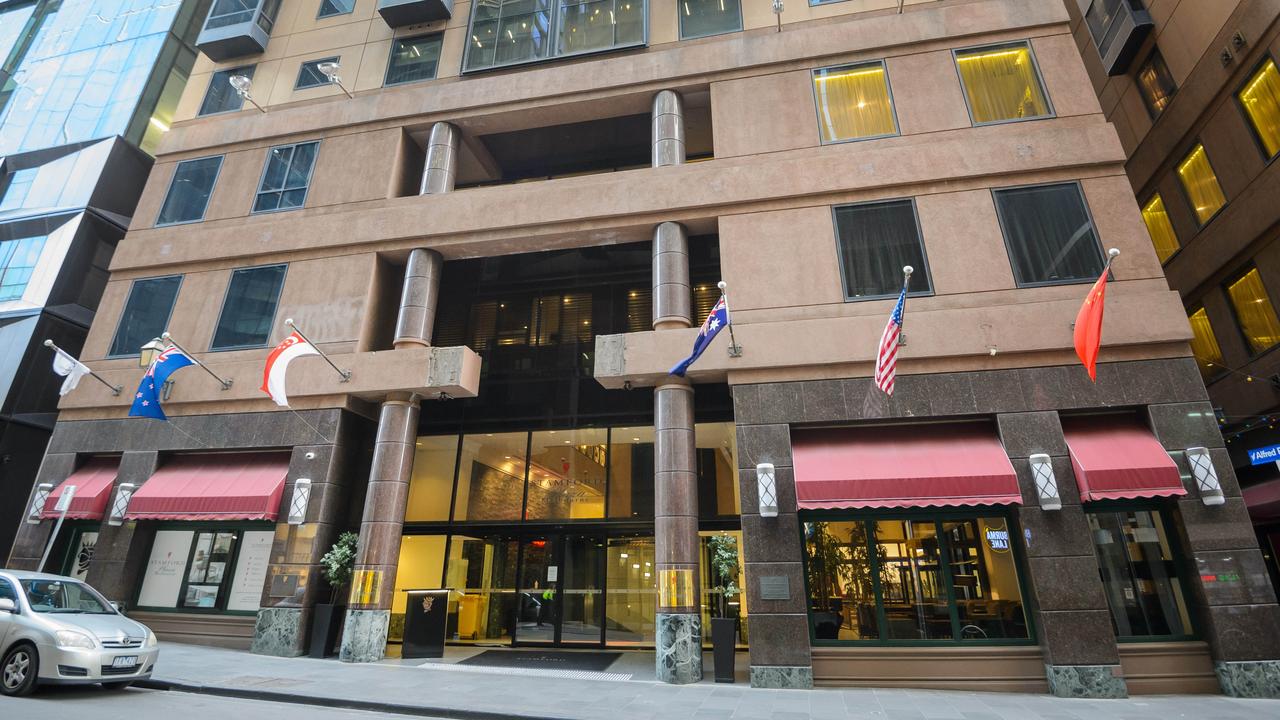Questions over delay in Victoria’s response to problems with hotel quarantine system
Victoria’s health minister knew about problems with the hotel quarantine system a month ago, so why wasn’t action taken earlier?
Questions are being raised about Victoria’s coronavirus response after it was revealed today Health Minister Jenny Mikakos was aware of concerns about the hotel quarantine program as early as May.
During a press conference Ms Mikakos was asked when she first became aware of concerns related to the hotels being used to quarantine returned travellers, where many security and other staff have become infected with the coronavirus.
There have been at least 48 cases of the coronavirus linked to two hotels in Melbourne since late May.
In bombshell claims this week, there are reports security guards at the hotel had slept with guests, took some of them to shopping centres and allowed them to move between rooms. Hygiene practices around personal protective equipment (PPE) were reportedly not followed.
The Health Minister was asked when she first learned about the issues around PPE, infection control protocols and physical distancing between staff.
Ms Mikakos said those questions would be examined by a judicial inquiry due to report in 10 weeks but after being pressed further, she said: “I became aware that there were issues when we had the first case at the first hotel”.
The first cases at the Rydges on Swanston hotel in Melbourne were identified in May and the Victoria Government confirmed on May 28 that a second case of coronavirus had been identified among staff, a statement on its website shows.
Just days later, on June 1, there were eight confirmed cases linked to the hotel, including the close contact of one of its workers. Within two weeks this had increased to 16 cases.
By the 17th, the Stamford Plaza Hotel had also been identified as a potential hot spot, with five security guards later testing positive. The number of cases linked to the hotel has since risen to 32.
Victoria’s active cases jumped from 58 to 143 in the period June 17-24, while the rest of the country combined only had an increase of 20.
However, when Victorian Premier Daniel Andrews announced on June 20 the tightening of restrictions in the state, he focused instead on the spread of the virus between families.
RELATED: Follow the latest coronavirus updates
RELATED: Bombshell claims about Victoria’s hotel quarantine

“The experts tell us that, largely, the numbers are being driven by families – families having big get-togethers and not following the advice around distancing and hygiene,” Premier Andrews’ statement said.
“In fact, around half of our cases since the end of April have come from transmission inside someone’s home.”
It wasn’t until June 25 that Victorian Chief Health Officer Brett Sutton confirmed a review of the training received by security guards at the hotels was underway.
Less than a week later Premier Andrews announced an inquiry into the state’s hotel quarantine. This week he was asked why it had taken so long for authorities to take action despite reporters raising potential issues for weeks.
Mr Andrews rejected the characterisation and said a number of changes to hotel quarantine had been made over a lengthy period of time.
He said he announced the inquiry after a genomic sequencing report found a “very significant number” of cases in late May and early June could be linked to a breach of infection control protocols by staff at the hotels.
“That left me in no doubt … there was a significant infection control problem and on that basis the inquiry has been announced,” he told reporters on Wednesday.
Professor Mary-Louise McLaws of the University of NSW told news.com.au the government should have recognised there was a problem sooner.
“I can only assume they were overwhelmed,” she said.
Prof McLaws is a member of the World Health Organisation (WHO) Health Emergencies Program Experts Advisory Panel for Infection Prevention and Control Preparedness, Readiness and Response to COVID-19.
She said she had already identified the hotel quarantine system as a potential weakness because the venues were not purpose-built and staff were not trained in infection prevention.
It was one of the areas that “screamed out to me” and she began taking note of the rising numbers as early as May.
“As of June 18-20, it just started taking off, with exponential growth,” she said.
It was during this time that the Premier was instead “getting cranky at families” but Prof McLaws believes authorities were perhaps too close to the numbers and so couldn’t see their significance.
A case here or there can be missed, which is why it was important to look at numbers over a two-week or incubation period, she said.
“It tells you there is a problem and then you dive into it and start reading the data — identifying where there are behavioural issues,” she said.
She said quarantine systems needed to be tested.
“You’ve got to do a walk-through and do checks when others are not there,” Prof McLaws said.
RELATED: Shock number of Victorians refuse COVID-19 tests
RELATED: Ten postcodes in Victoria locked down

“Every time I’ve been asked advice on a new outbreak approach overseas, I’ve walked through the environment to see where things can go wrong and try to understand human behaviour.”
Unlike many other states including NSW, security services at Victoria’s quarantine hotels were provided by private firms, not the police or defence force.
Security guards were responsible for ensuring guests stayed in their rooms but some have suggested they weren’t trained properly for dealing with a medical environment.
Prof McLaws said it was important not to assume people were bad if they did the wrong thing.
“They are just human and so they are going to get it wrong,” she said.
She said around the importance of hygiene needed to be reinforced continually.
“Security guards are not purposely trained for understanding compliance, they are trained in security or hospitality,” she said.
“They may do a great job at the front entrance to a shopping mall but this is different.
“This is like being right outside a patient’s room (in a hospital).
“Health care workers are trained in PPE and infectious disease control but even they can make mistakes.
“You do need to appreciate that (staff) don’t appreciate the importance of complying with every single instruction.
“Human nature is such that this message needs to be repeated many times.”
She said it was also hard for Australians because their good nature may see some letting their guard down.
“Australians like each other and don’t objectify or make subjective assessments, so they might think someone sounds and looks OK,” she said.
“But this virus is so clever, it hides, so it can take two days before symptoms appear.
“Up to 18 per cent never show any symptoms, or they never think they are unwell.”
Continue the conversation @charischang2 | charis.chang@news.com.au




